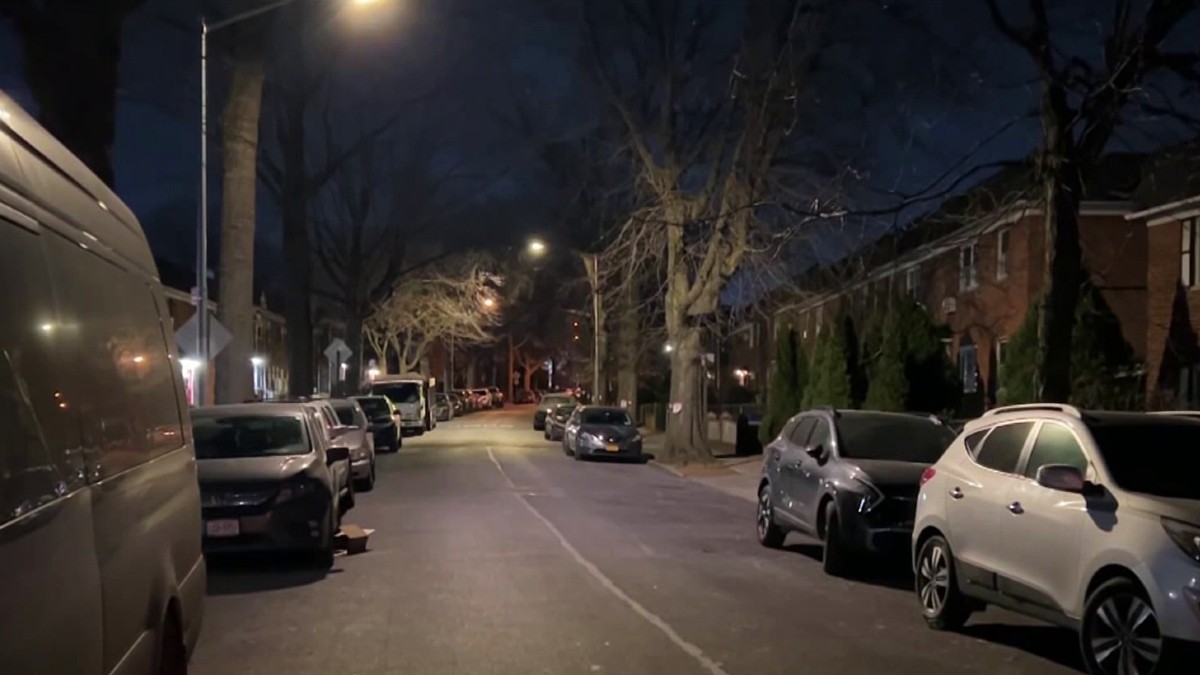
It took determined detectives, science and the Queens district attorney to give a family who had all but given up the gift of answers for the holiday season. For 30 years, they wondered what happened to their sister who vanished without a trace, and finally have some new information. NBC New York’s Marc Santia reports.
For 30 years, the family of Judy Rodriguez wondered what happened to the beloved mother and sister after she vanished without a trace.
The family had all but given up hope of getting answers, but the combination of determined detectives, science and the Queens district attorney's office gave them the gift of new information during the holiday season.
"It really is heartwarming to have answers," said an emotional Anna Salvadore, Rodriguez's sister.
Another sister, Jennifer Musse, called Judy "a beautiful person, she always had a smile on her face."
Get Tri-state area news delivered to your inbox. Sign up for NBC New York's News Headlines newsletter.
A photo showed Judy and her daughter Stephanie at her first birthday party in 1991. But that was the last time the family would ever see Judy, as she disappeared right after.
"We just had a beautiful time and unfortunately that was the last time we all saw her," said Salvadore.
The family searched across New York City and posted handmade missing fliers. But there were no calls, no leads — just the unbearable weight of questions, especially for the matriarch of the Rodriguez family.
Queens news
From Jamaica to Astoria to Flushing to Sunnyside and all points between, NBC New York covers Queens news, weather, traffic and more.
"My mom was just always looking, asking questions. Trying to find people who had seen her," Salvadore said. "I know she lived with an incredible hole in her heart. Just never felt whole after that."
Fast-forward 33 years and to the popularity of genealogy testing. Salvadore's daughter decided to submit a sample to a database and consented to law enforcement access. Then out of nowhere, a phone call came in.
"It was a genealogist for the NYPD," said Salvadore, "And that there was a possible DNA match to a missing person. I immediately got chills when I heard the message.”
Judy’s daughter Stephanie was asked by a detective to submit samples for further testing.
"It came back a 100% match on the anniversary of my mom's passing. I felt like it was my mom giving us answers. It was incredible," Salvadore said.
"To me, this is a miracle," said Marcos Rodriguez, the victim's brother.
Queens District Attorney Melinda Katz started the cold case unit five years ago and it’s become a model across the country.
"I knew that we could make a difference in people’s lives and that difference didn't always mean prosecution. That difference meant giving people answers," Katz told NBC New York. "There is comfort to having closure."
For the DA's office, those answers Katz spoke about can come from science.
"It’s unusual to have a prosecution of a case where we have a body but not an identification," the DA said.
In 1991, the body of a woman was found hidden off the Cross Island Expressway and the Southern State Parkway in Queens. Four men were arrested, charged and convicted of murder. The victim could not be identified but NYPD detectives at the time made a crucial decision.
"The foresight of keeping her bones and knowing that it could be tested one day was amazing," said Katz. "Thirty-three years later, my office and the NYPD put into a genealogy company the DNA. And we finally got an identity of this woman. A woman named Judy Rodriguez."
Judy Rodriguez's case is not alone. Far from it.
"We have about 47 cases now of victims that we have not been able to identify over the last decades. We are going through them one by one," Katz said. "Congresswoman Grace Meng gave us $500,000 grant to be able to do a lot of this research, especially with the 47 other victims that we have to identify.”
For DA Katz, the mission is deeply personal.
"I lost my mom when I was 3. And I had closure and I had family who knew exactly what happened to her. I can’t imagine all those families out there that don’t know what happened to their loved ones," she told News 4.
Now that they have answers, Rodriguez's tight knit family is planning on burying her near her parents and giving her a proper memorial service.
"Honestly happy that we are able to put her to rest. And that we were able to find her," Stephanie Rodriguez said of getting her mother's body identified. "It’s bittersweet but I’m so grateful we have answers. So grateful, beyond blessed."
For families wrestling with unanswered questions during the holiday season, the Rodriguez family shared words of encouragement.
"There’s hope out there," said Stephanie Rodriguez.
"For those that are looking for answers, go get a DNA test," Salvadore said. "Don’t lose hope. It is possible all these years later to have answers."



